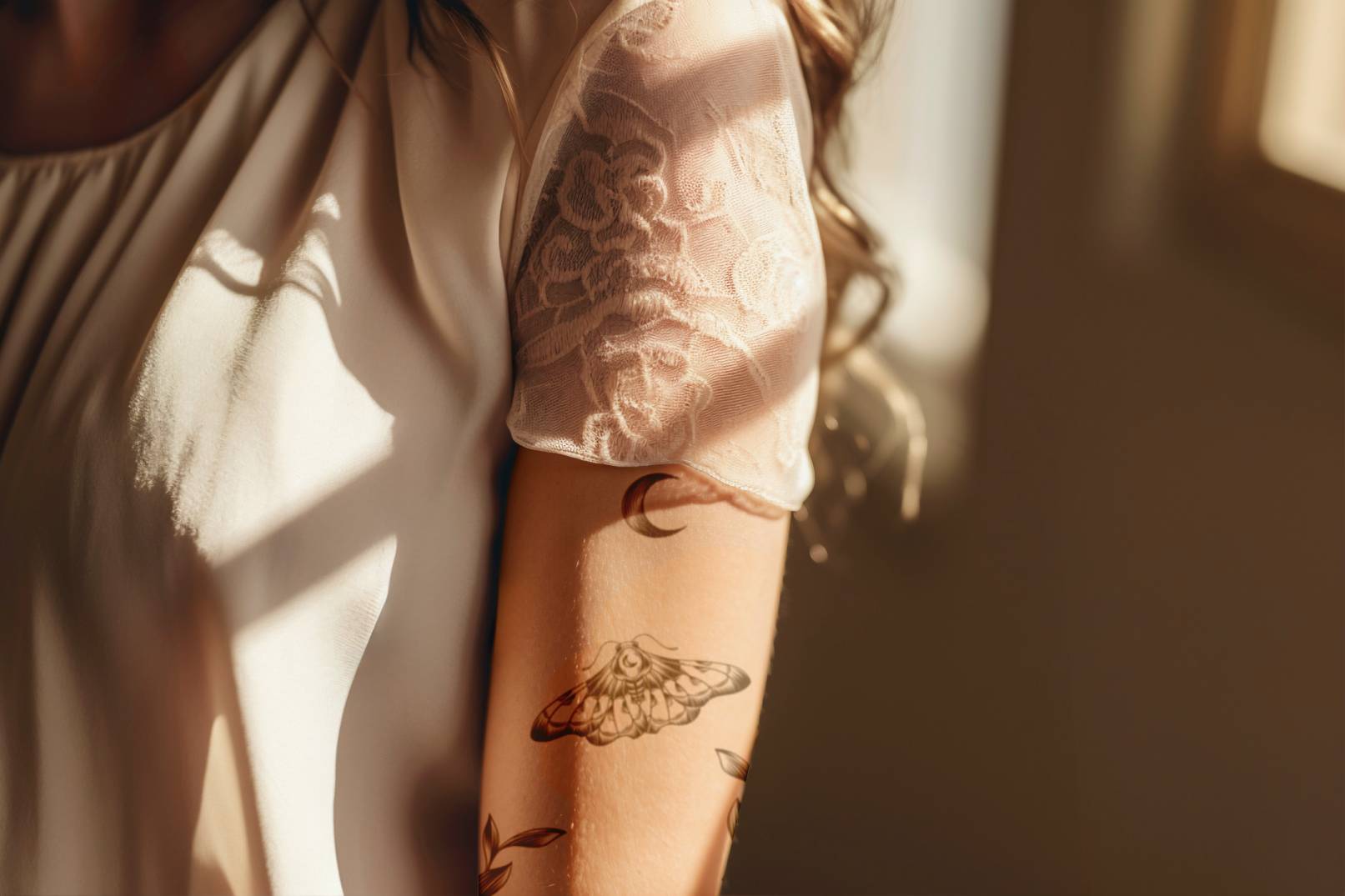Thinking about a tattoo but not sure you’re ready to commit? Jagua tattoos give you a realistic, temporary look without needles, while permanent ink is, well, permanent. This UK-focused guide compares longevity, colour, cost, safety, aftercare and lifestyle so you can choose confidently.
Jagua vs permanent tattoo (at a glance)
| Factor | Jagua tattoo | Permanent ink tattoo |
|---|---|---|
| Longevity | 7–15 days (fades gradually) | Years to lifelong (may blur/fade over time) |
| Colour | Blue-black, very real tattoo look | Full colour range incl. greyscale & vivid hues |
| Pain | No needles; painless application | Needles; pain varies by placement & size |
| Commitment | Low (trial placements & styles) | High (removal is costly/time-consuming) |
| Safety | No needle puncture. Patch-test advised (rare genipin allergy reported)[3] | Needle hygiene crucial; infection/allergy risks; choose a licensed artist |
| Removal | Fades naturally; can speed fading with gentle wash/exfoliation | Laser removal only; expensive & multiple sessions |
| Cost | Low per design; DIY at home | Studio pricing; higher upfront |
| Aftercare | Keep dry first 12–24 h; light moisturiser; SPF | Follow artist’s regime; healing 2–4 weeks |
What is a Jagua tattoo?
Jagua gel is made from the fruit of Genipa americana. Applied to the skin, it develops into a deep blue-black stain within 24–48 hours and looks strikingly similar to real ink. It’s temporary and generally well tolerated, but “natural” never means “risk-free”, so do a patch test 24 hours before full application (rare allergy to genipin has been reported in the dermatology literature).[3]
Is Jagua safe?
Yes, when used as directed, Jagua is a cosmetic stain and does not involve needles. It is not the same as so-called “black henna”, which may contain the hair-dye chemical PPD. In the UK/EU, using PPD on the skin for temporary tattoos is illegal and has caused severe reactions and long-term sensitisation to hair dyes. If a vendor offers “black henna”, avoid it.[1][4] Regulatory opinions also explain why PPD is restricted in cosmetics in Europe.[2]
How long do Jagua tattoos last?
Typically 7–15 days, depending on placement (hands fade faster), skincare, swimming, exfoliation and UV exposure. To maximise wear, keep the area dry for the first 12–24 hours, avoid heavy friction and use SPF on exposed skin.
Choosing between Jagua and permanent ink
Pick Jagua if you…
- want to try a placement or size before committing
- need a tattoo for a festival, holiday, theatre or photoshoot
- prefer no needles, no downtime, low cost, easy refresh
Pick permanent ink if you…
- have a design you’ll love for years and a trusted, licensed artist
- want colour realism beyond blue-black
- accept the healing process and long-term upkeep
Cost & time
- Jagua DIY: low cost per design; apply at home in minutes; full development 24–48 h.
- Permanent: studio minimums and hourly rates vary; expect design consultation plus 1–3 sessions for small/medium pieces.
Aftercare that actually helps
- For Jagua: keep dry for the first 12–24 h; avoid friction, saunas and long swims; use a light, fragrance-free moisturiser; SPF on exposed areas. See our full Jagua aftercare guide.
- For permanent: follow your artist’s regimen (gentle clean, thin ointment/cream, no picking, sun protection). Poor aftercare affects healing and colour.
Common questions
Does Jagua hurt?
No—there are no needles. It feels like applying a gel.
Can I remove a Jagua tattoo early?
You can speed fading with warm water, mild soap and gentle exfoliation. Avoid harsh scrubbing or irritants.
Can I swim?
Chlorine and sea water may shorten wear. If you swim a lot, choose placements under clothing and re-apply sooner.
Is Jagua safe for teens?
Jagua is generally well tolerated, but always patch-test. Never use or allow “black henna” tattoos.[1]
Ready to try? Explore our Jagua gel & kits, see how to apply Jagua, and keep it crisp with our aftercare guide.
References
- British Skin Foundation – “The dangers of ‘black henna’ temporary tattoos”
- European Commission / SCCS – Opinion on p-Phenylenediamine (PPD) in cosmetics (context & restrictions)
- Bircher AJ et al. – Allergic contact dermatitis from a temporary Jagua tattoo (genipin), PubMed (2017)
- BMJ – “How safe are ‘black henna’ tattoos?” (PPD on skin is illegal in the EU)












